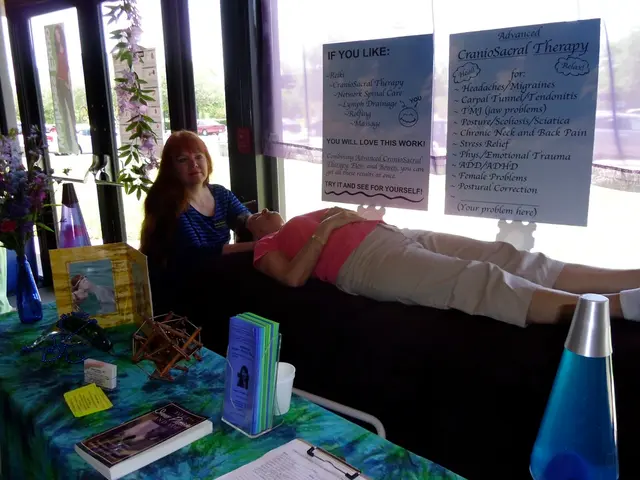Unrelenting Fatigue among India's Registered Therapists (RCI)
The Rehabilitation Council of India (RCI) is at the forefront of improving rehabilitation services in India, but it faces several challenges. Inadequate teacher training, lack of sufficient infrastructure and assistive resources, shortage of trained personnel, and inconsistent implementation of inclusive education policies, particularly in rural areas, are the primary obstacles.
One of the key issues is the inadequate training of teachers and the lack of special educator expertise in both mainstream and special schools. This limits the quality of education and rehabilitation, resulting in a suboptimal learning environment for students with disabilities.
Another challenge is the limited infrastructure and resources, such as the absence of ramps, accessible toilets, Braille books, hearing aids, and assistive technology. These barriers are particularly prevalent in rural regions, hindering the inclusion of persons with disabilities.
The shortage of professionals like therapists, counselors, and special educators is another significant hurdle.
Despite frameworks like the National Education Policy 2020 proposing integrated special education training for teachers, the inconsistent implementation of government policies aimed at inclusive education and rehabilitation is a concern.
To address these challenges, the RCI has proposed several solutions. One of the key strategies is the regulation and standardization of training programs and curricula in disability rehabilitation and special education, ensuring uniform standards across India. Accreditation of training institutions based on quality criteria is another initiative aimed at ensuring qualified professionals are trained to serve persons with disabilities effectively.
The RCI is also promoting continuing rehabilitation education and research to keep rehabilitation approaches current and evidence-based. The implementation of the Community Based Inclusive Development Programme (CBID), a collaborative effort to develop competency-based courses enhancing community rehabilitation efforts nationwide, is another significant step.
Collaboration with government bodies such as the Department of Empowerment for Persons with Disabilities and academic institutions for policy formulation, recognition of qualifications, and capacity building is also a key strategy. Encouragement of professional development and regular training for both special and mainstream educators to handle inclusive classrooms is another important aspect.
Despite these initiatives, challenges remain. The government needs to invest more money, build better facilities, increase the number of professionals, and raise public awareness to reduce stigma around disability and mental health. RCI professionals are not paid well and are not recognized for their efforts, which impacts job opportunities, advocacy for change in policies, and the capacity to work and grow.
Rehabilitation continues to be a low-priority area in national health agendas, causing underfunding, poor infrastructure, scarce resources, and a weak institutional framework. A lack of awareness and stigma towards mental health and rehabilitation services in India hinders the demand for these services, impacts funding, policymaking, availability, and overall recognition of the profession.
Inconsistencies in policies and regulations, limited administrative resources, and financial and infrastructural constraints hinder the RCI's ability to effectively implement and oversee rehabilitation programs across the nation. The World Health Organisation recommends a minimum of 1 psychiatrist per 10,000 people, but in India, this ratio is significantly lower, leading to a shortage of skilled professionals.
Limited support from the government and public hinders the development, implementation, and accessibility of quality rehabilitation services in India. The RCI needs to ensure that its curriculum and training are kept up to date with the latest developments in the field to remain relevant. Recent policy reforms have led to fragmented governance and poor coordination in the field of psychology education, causing confusion about recognisable qualifications and the path to licensure.
The field of rehabilitation is rapidly evolving with constant advances in technology, techniques, and therapies, requiring regular updates and well-trained professionals in India. There is a significant shortage of trained professionals in rural areas of India. According to the National Mental Health Survey (2015-2016), 10.6% of Indian adults have some mental disorder.
The way psychology professionals are defined and classified under Indian law does not align with global standards set by bodies like ISCO or the WHO, potentially reducing the credibility of Indian training and licensure globally. RCI certified professionals include clinical psychologists, special educators, audiologists and speech therapists, rehabilitation technicians, and psychiatric social workers. There is a lack of an integrated approach to rehabilitation in India, with professionals often working alone and in isolation, leading to ineffective outcomes for clients.
Greater collaboration with policymakers and stakeholders is necessary to effectively implement guidelines and address the needs of professionals and students. RCI professionals will continue to struggle in providing comprehensive care without governmental, institutional, and public backing. The RCI needs to ensure that its curriculum and training are kept up to date with the latest developments in the field to remain relevant.
Read also:
- Experiencing Life's Variety Firsthand: Gaining Insights from Life's Broad Spectrum of Experiences
- Impact of Complex Post-Traumatic Stress Disorder on Romantic Relationships: Symptoms, Causes, and Precautions
- Strategies for Keeping Work Reasonable and Rewarding for those with Autism and ADHD
- Impaired Driving Awareness Campaign Announced by MADD Under the Name "End Herre"







